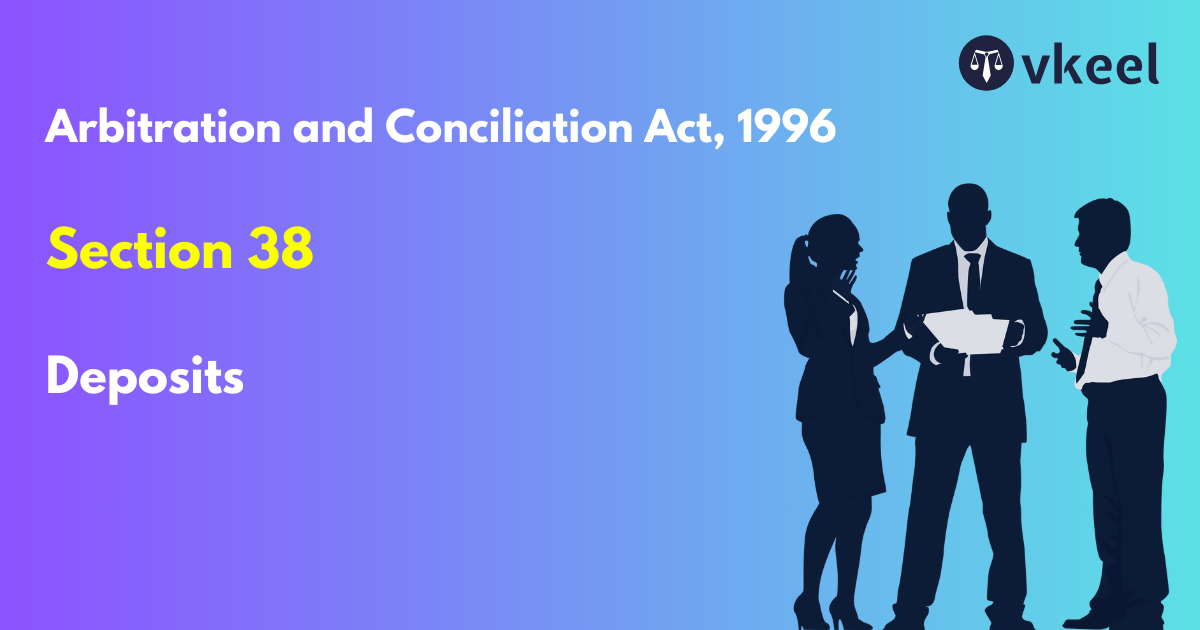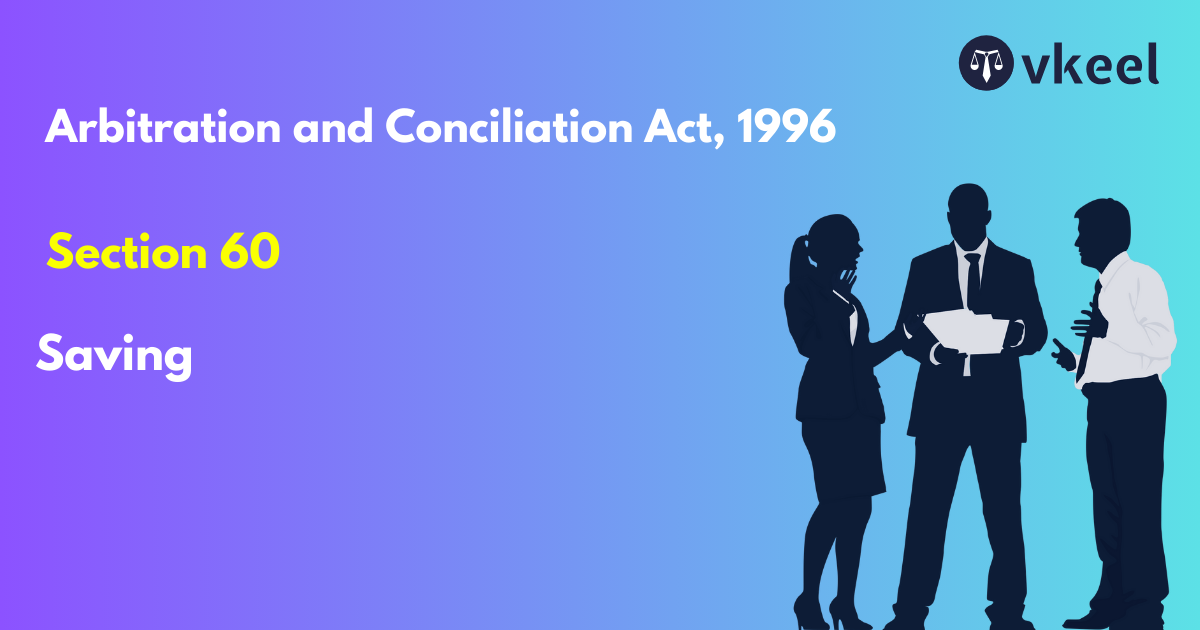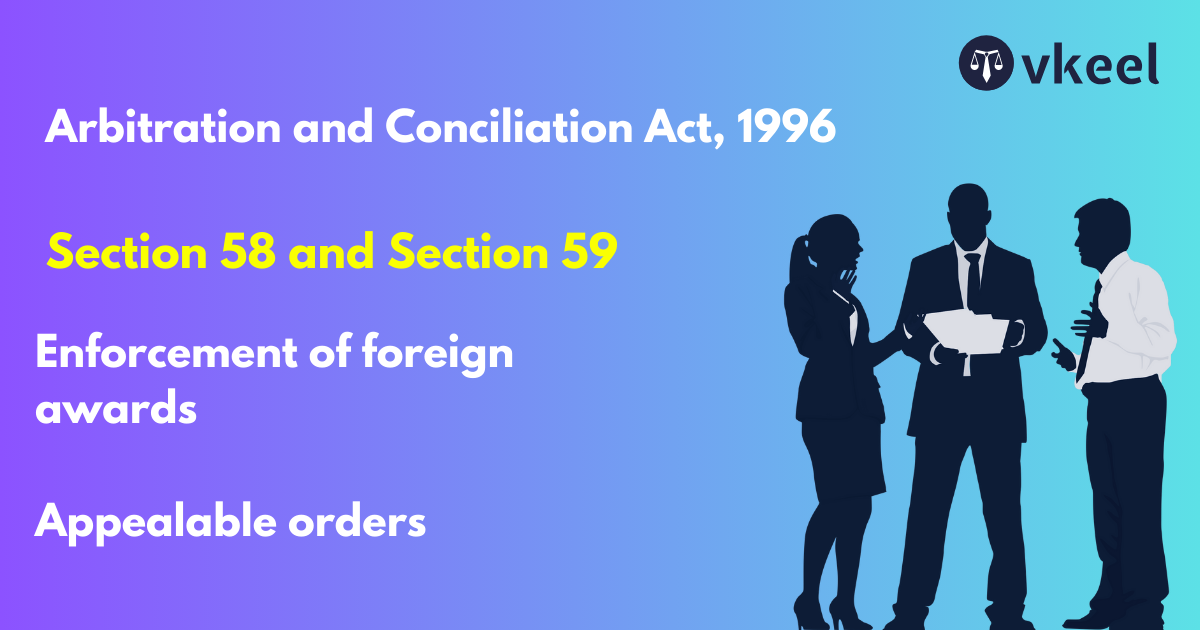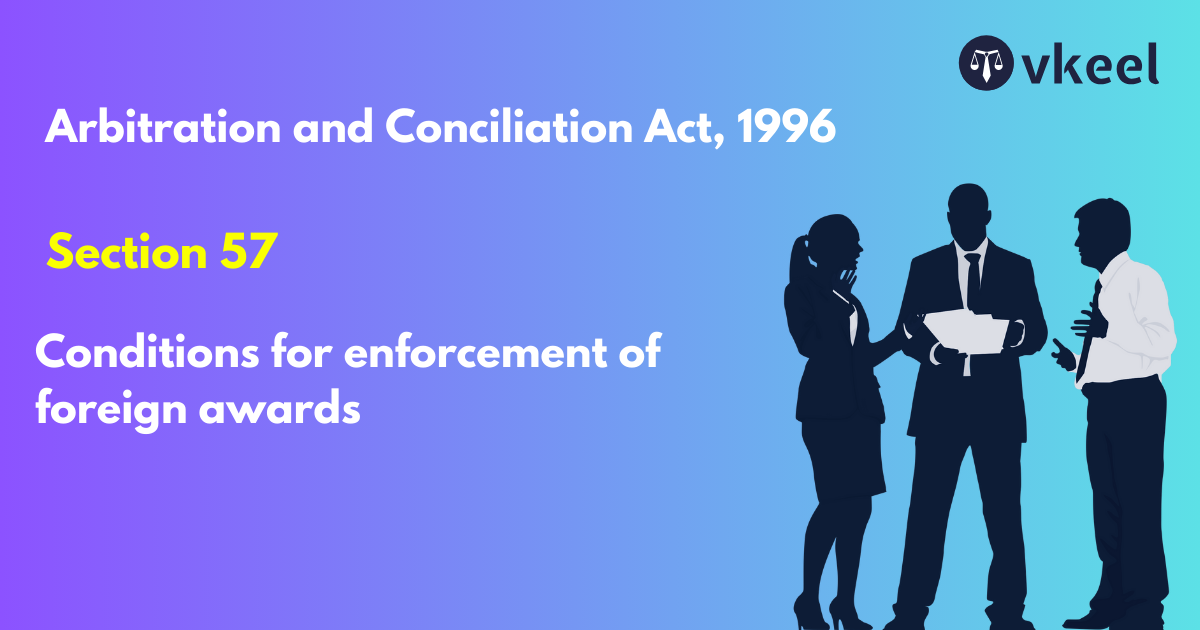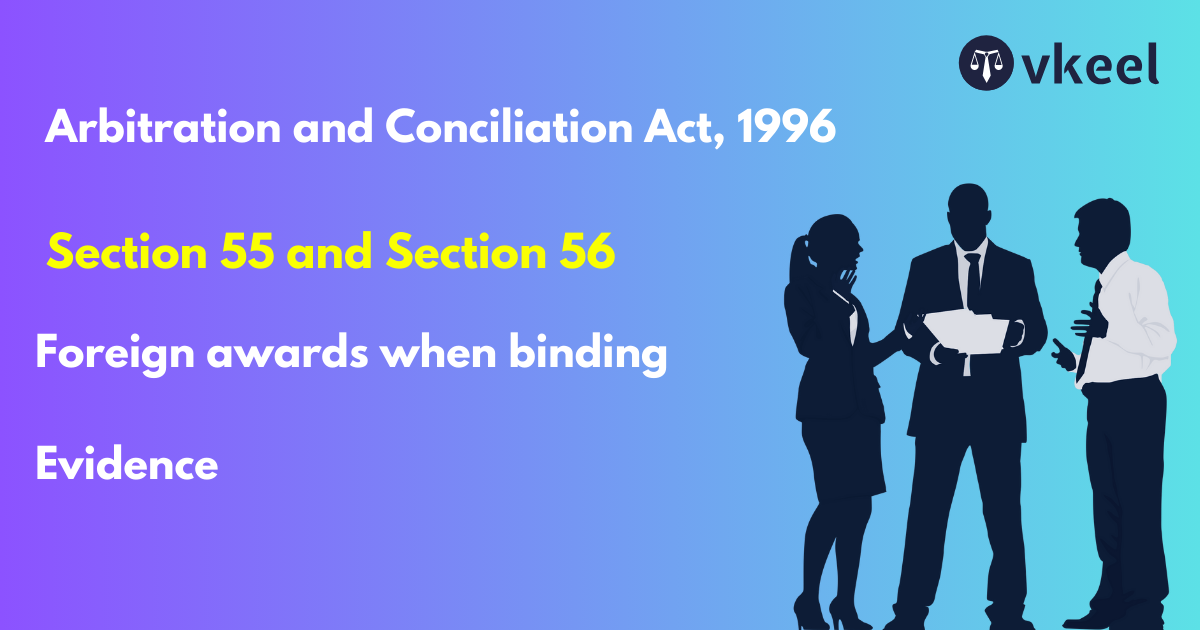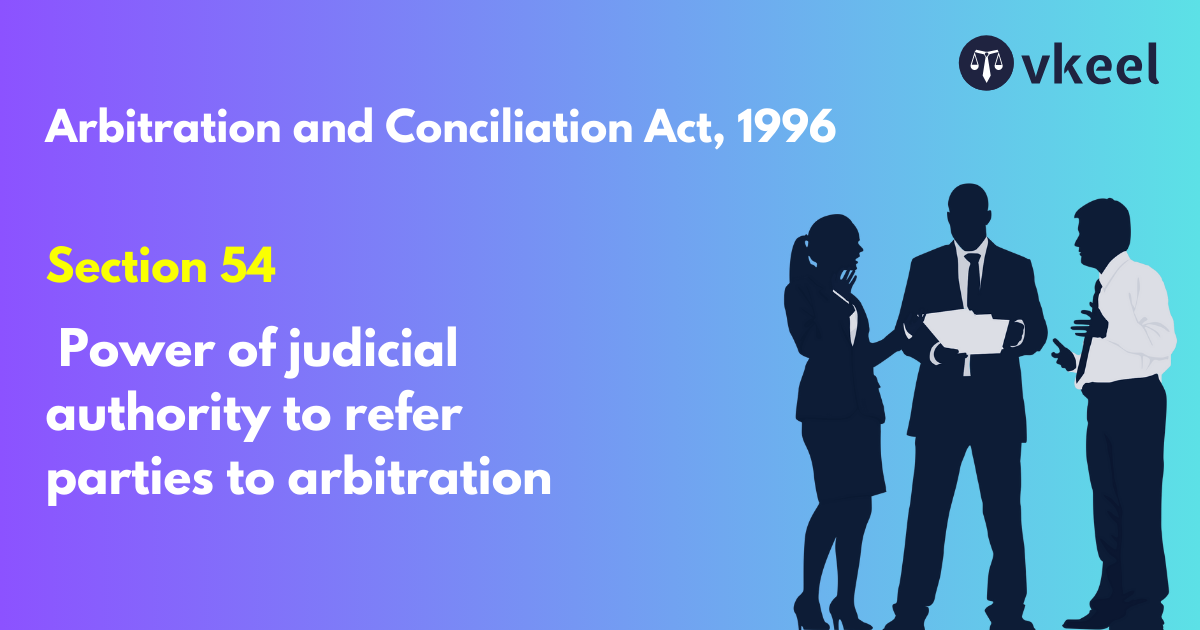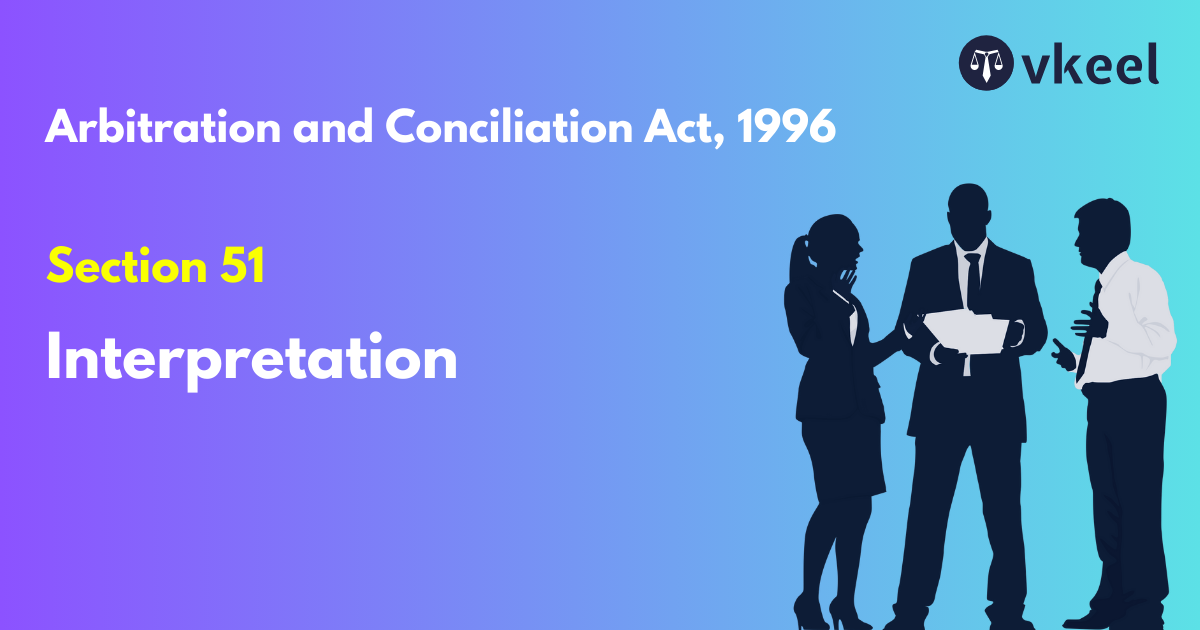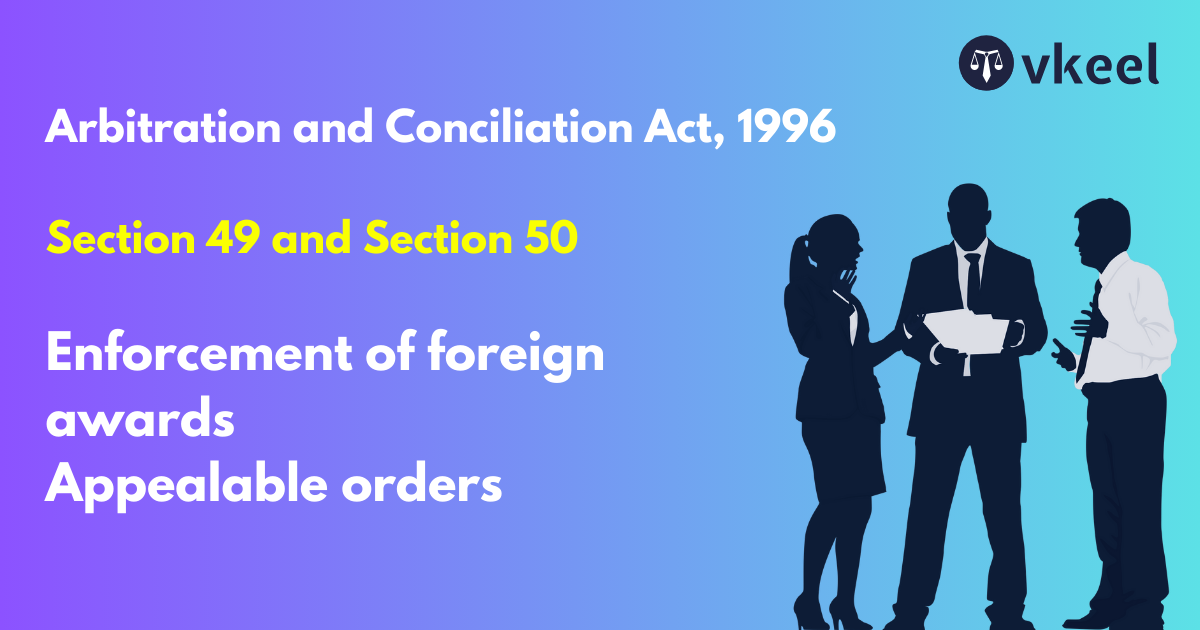Section 38: Arbitration and Conciliation Act, 1996
By Nivedita Dhiman
Table of Contents
Introduction of Section 38
Section 38 of the arbitration and conciliation act enables the arbitrator to suspend the proceedings where a party does not pay his share of the costs. It would therefore, be incorrect on the part of the court to say that the arbitrator has misconducted himself. Thus insistence of payment of arbitration fees and costs would not amount to misconduct on the part of the arbitrator. An arbitrator cannot be expected to continue adjudicating upon the claim or a counter claim, without the parties making a deposit of costs representing the reasonable fees and expenses of the arbitrator.
Section 38 of arbitration and conciliation act
Deposits
(1) The arbitral tribunal may fix the amount of the deposit or supplementary deposit,
as the case may be, as an advance for the costs referred to in sub-section (8) of section 31, which it
expects will be incurred in respect of the claim submitted to it:
Provided that where, apart from the claim, a counter-claim has been submitted to the arbitral tribunal,
it may fix separate amount of deposit for the claim and counter-claim.
(2) The deposit referred to in sub-section (1) shall be payable in equal shares by the parties:
Provided that where one party fails to pay his share of the deposit, the other party may pay that share:
Provided further that where the other party also does not pay the aforesaid share in respect of the
claim or the counter-claim, the arbitral tribunal may suspend or terminate the arbitral proceedings in
respect of such claim or counter-claim, as the case may be.
(3) Upon termination of the arbitral proceedings, the arbitral tribunal shall render an accounting to the
parties of the deposits received and shall return any unexpended balance to the party or parties, as the case may be.
Landmark Judgements of section 38
UOI vP Jeevanandam, 2000
When one of the parties after having consented to the fee fixed by the arbitrator wishes to go back, it cannot be permitted to do so under any circumstance. There is no law which enables a party to go back from its commitment. Therefore, relief to the party aggrieved by the “high” fee fixed by the party is no ground for removal of arbitrator.
SP Singla Construction Put Ltd v State of Punjab, Case No. 37 of 2011
Where the petitioner challenges the order of the arbitral tribunal whereby it had fixed fees on the ground that fixation of costs is against the mandate of section 31(8), it was held that the scope of section 11 is limited to the appointment of arbitrator or one of the parties fails to appoint an arbitrator, then court cannot in exercise of powers under section 11(6) to terminate the mandate of the arbitrator or arbitral tribunal.
Haryana Vidyut Prasaran Nigam Ltd v Arya Nirman, 2010
Removal of the arbitrator on the ground that fee fixed by him is high, is not envisaged by the provisions of the Act. Where the petitioner approached the High Court with an application for terminating the mandate of the arbitrator on the ground that he had fixed fees higher than the norms fixed by the petitioner, it was held that the arbitrator cannot be replaced just because the fees fixed by him is not in accord with the norms fixed by the petitioner.
AP Thomas v UOI, 2014
The trial court had observed that not permitting the claimant to pay arbitration fee in instalments and passing of the award on preliminary issue does not amount to misconduct.
This section enables the arbitrator to suspend the proceedings where a party does not pay his share of the costs.
DSIDC v BLS Summer JV, 2019
Held that there cannot possibly have been anything amiss in the arbitrator accepting fee from the contractor, much less anything sinister leading to a reasonable doubt as to arbitrator’s impartiality since the actions taken were in consonance with provisions of section 38. It was further held that mere fixation of arbitrator’s fee in a manner that is not to the liking of a party, and payment of entire fee by the contractor cannot be a ground to allege bias or prejudice against the arbitrator.
Conclusion of Section 38
The above-mentioned section allows the arbitral tribunal to appoint experts to give advice on different matters involving technical and specialised matters.
Disclaimer:
The information provided in the article is for general informational purposes only, and is not intended to constitute legal advice or to be relied upon as a substitute for legal advice. Furthermore, any information contained in the article is not guaranteed to be current, complete or accurate. If you require legal advice or representation, you should contact an attorney or law firm directly. We are not responsible for any damages resulting from any reliance on the content of this website.

